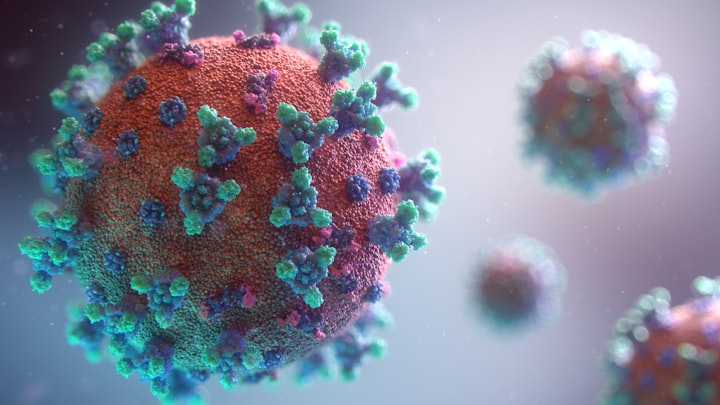In severe cases of COVID, there is a correlation between excessive gut fungi and inflammation.
An excessive presence of 'mycobiota' could potentially contribute to the initiation of detrimental immune reactions.

An imbalance of fungi in the gut may contribute to excessive inflammation in individuals experiencing severe COVID-19 or long COVID. A recent study discovered that individuals with severe disease exhibited heightened levels of a fungus capable of activating the immune system and inducing long-lasting changes.
The findings, published on 23 October in Nature Immunology, raise the potential for utilizing antifungal treatment to alleviate the symptoms of critically ill COVID-19 patients.
"We are aware that inflammation is a driving force behind severe disease," states Martin Hönigl, a clinical mycology researcher at the Medical University of Graz in Austria, who was not involved in the study. According to him, this research offers insight into a potential mechanism of disease-causing inflammation that may have been overlooked.
Insights on Inflammation
Trillions of microorganisms reside in and on our bodies, aiding in digestion, protecting against harmful pathogens, and more. While the majority of the microbiome is composed of bacteria, past research has demonstrated that the fungal component, known as the mycobiota, also interacts with the immune system.
Previous studies have revealed that many individuals with COVID-19 possess gastrointestinal systems with altered microbial compositions and disrupted protective barriers, potentially enabling the entry of pathogens into the bloodstream. Additionally, some critically ill COVID-19 patients have contracted dangerous fungal infections in their lungs.
Exploring the Triggers of Severe COVID
Immunologist Iliyan Iliev and his colleagues at Weill Cornell Medicine in New York City sought to further investigate the connection between the mycobiota and COVID-19. The researchers analyzed blood samples from 91 individuals hospitalized with the disease in 2020. Almost three-quarters of these individuals suffered from severe COVID-19, requiring over six liters of supplementary oxygen per minute or invasive mechanical ventilation, while the rest experienced moderate or mild disease.
In comparison to 36 individuals who had never tested positive for SARS-CoV-2, those with severe COVID-19 exhibited nearly four times as many antibodies against three fungal species commonly found in the gut, including Candida albicans. Such a high prevalence of antibodies suggests elevated levels of these fungi. Furthermore, fecal samples collected in early 2021 from 10 COVID-19 patients demonstrated higher overall levels of gut fungi, particularly Candida species, compared to 10 healthy individuals. Among these patients, the abundance of Candida showcased a positive correlation with disease severity. Previous research has demonstrated that certain fungal species, particularly C. albicans, can activate the immune system.
Within a subset of severe COVID-19 patients, the quantity of antibodies against C. albicans in their blood correlated with the number of neutrophils—an immune cell type capable of triggering inflammation.
When the researchers infected mice with C. albicans extracted from severe COVID-19 patients and subsequently exposed them to SARS-CoV-2, they observed a higher infiltration of neutrophils into the animals' lungs, leading to an intensified inflammatory response compared to mice infected with SARS-CoV-2 alone. Administering an antifungal drug to these mice subsequently reduced the number and activity of neutrophils.
Theories on Long-COVID
The study also revealed that individuals who experienced severe COVID-19 continued to exhibit elevated levels of antibodies against C. albicans and neutrophil precursors that were primed to counter fungi, even long after recovering from the disease—up to one year in some cases. These factors suggest that alterations in the mycobiota during a SARS-CoV-2 infection could contribute to the inflammation associated with long COVID.
"There are several theories regarding the triggers of persistent symptoms following COVID," explains Aran Singanayagam, a respiratory immunologist at Imperial College London. "Microbial dysbiosis, whether in the gut or the lungs, is a major theory that is being proposed, so this study adds further weight to that theory."
Researchers concur that more investigations are necessary to explore the relationship between gut fungi and COVID-19. It remains unclear whether the observed changes in the mycobiota in COVID-19 patients were a result of the disease or preceded it, rendering individuals more susceptible.
If future studies unveil further insights into the underlying mechanisms involved, existing antifungal therapies could potentially be repurposed to aid individuals with COVID-19. Iliev hopes that this research will prompt people to consider the common biological markers observed in distinct diseases and explore how they can be leveraged.
About the Creator
harunur roshid
I am harun so exitet Vocal site. I love to earn online.






Comments (2)
thanks mam
There is still so much to be learned about the human body and how viruses affect them. My son in his 50s) spent almost one month in the hospital with severe shingles. The virus is gone but it left him completely deaf in one ear and enough nerve damage to give him permanent vertigo. (the virus attacked his nervous system). None of the doctors he has seen or is currently seeing can figure out what and how this happened and how to fix him. He is so dizzy (from the vertigo) that he can't even drive. He hasn't worked in 4 months and disability insurance is just less than half his salary and the meds he's on eat that up. Yet, no one knows enough about the human body to fi him. Your article is fantastic and give us an insight into what damage viruses can do.